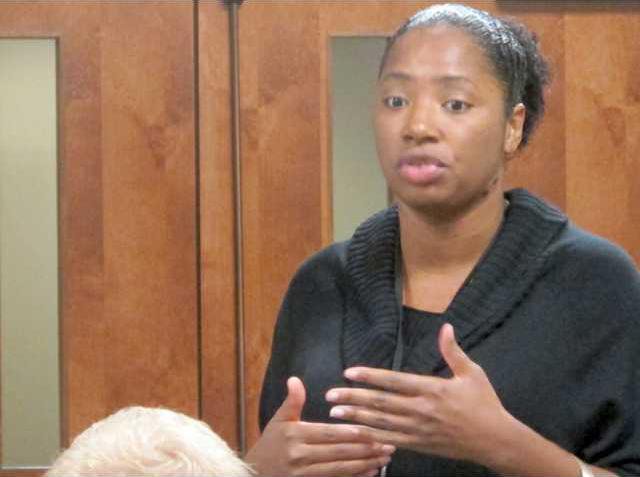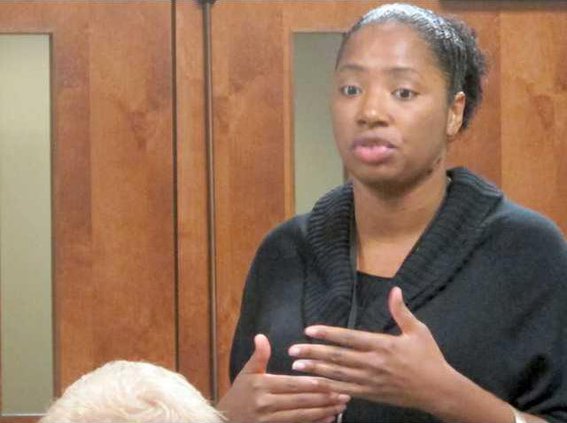Hinesville Assistant City Manager Ken Howard and Homeless Prevention Program coordinator Daisy Jones invited representatives from the Savannah Veterans Affairs Primary Care Clinic to hold information sessions Monday morning in the Community Development training room.
During two hour-long sessions, case manager Millicent Duncan and supportive housing counselor Mark Faulkner discussed the U.S. Department of Housing and Urban Development and U.S. Department of Veterans Affairs Supportive Housing program.
Jones said HUD-VASH, a federally funded program made possible through a HUD-VA partnership, provides subsidized-housing choice vouchers and clinical services for eligible homeless veterans. She said the vouchers are administered through local public housing authorities. Hinesville has six apartment complexes participating in HUD-VASH, she said, and Hinesville’s 25 vouchers will be administered through the Waycross Housing Authority.
Faulkner said HUD-VASH is part of a five-year plan that began in 2008 with a goal to eliminate homelessness among veterans. He called HUD-VASH the largest supported permanent-housing initiative that combines HUD housing choice vouchers with VA case-management services.
He said VA case managers determine the clinical eligibility and homeless status of applicants with a focus on the chronically homeless, defined as someone who has been homeless for more than 365 days or has had four episodes of homelessness in the past three years. Being evicted counts as one homeless episode, Faulkner said.
He said the local public-housing authority verifies if the veteran meets HUD criteria for income and is not on a list of lifetime registered sex offenders. Duncan added the program is not screening veterans with other criminal charges. She said the VA realizes many veterans in a homeless state have had run-ins with the law and is not using HUD-VASH to address that issue.
“When a veteran comes into our walk-in clinic, we first verify that (he or she) meets the criteria,” Duncan said. “We can verify the veteran’s status with a (Department of Defense) Form 214, VA identification card or any government-issued document that includes the Social Security number.”
She said the maximum amount of income a veteran in Ware County can make in order to qualify for the HUD-VASH program is $10,050. In Chatham County, the amount is about $21,000.
City leaders and veterans at the information session immediately raised questions. Howard asked why the maximum income is so low and was told the average income in Waycross is lower than Savannah. Another question was if the veteran’s VA disability was counted as income. She confirmed his question, noting a disabled veteran receiving about 50 percent disability would make too much money to qualify for the HUD-VASH program.
“That’s difficult,” said Howard, shaking his head. “The income limit is going to disqualify a lot of veterans who need help. I hope we can have a dialogue with the VA regional office about this. I would like HUD-VASH to use Hinesville’s income average, not Waycross. I think our income levels would be pretty close to Savannah’s.”
Duncan said the VA case manager facilitates communication between the PHA and the veteran and acts as a liaison with critical partners, including landlords. The case manager also makes annual visits to assess the veteran’s ability to maintain a safe environment. While noting the veteran is responsible for all deposits, monthly utilities and a portion of the rent, she said a veteran also must participate in the case management.
If the veteran’s family refuses “without good cause” to participate in the required case management, she said the HUD-VASH assistance may be terminated. She said HUD-VASH has no end date though housing vouchers usually are set for a one-year lease.
HUD, VA partner to help homeless vets


Sign up for our e-newsletters